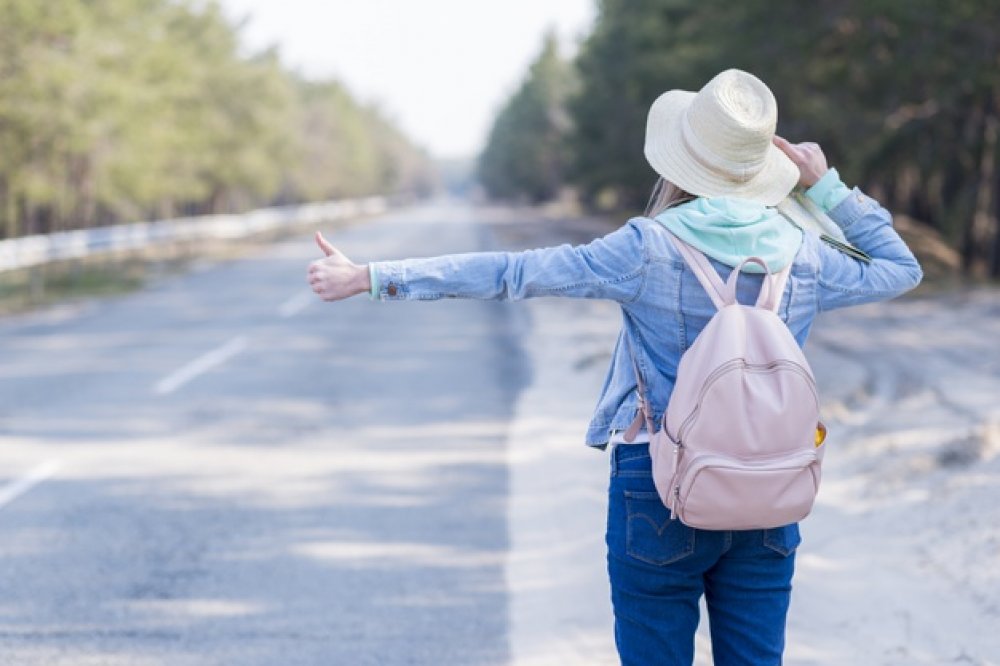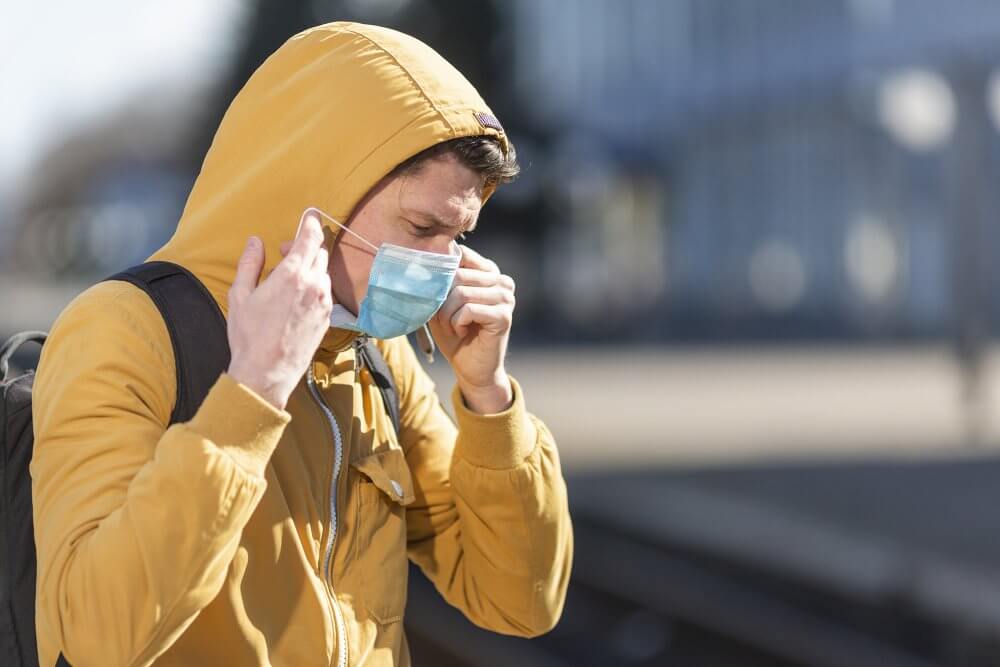
Hitchhiker's guide - what you should know?
How to hitchhike safely and effectively - practical tips. Everything you need to know before you go on a hitchhiking trip.
10 August 2021

Covid-19 epidemic started in China at the end of 2019 and within few months took over the world as global pandemic threatening public health. Even though the general situation has improved, the virus, alternatively called SARS-CoV-2, is likely to pose a serious threat to human health. Trips and travels should, therefore, be limited to the minimum necessary with all the advised safety measures in place.
Key Insights:
Covid-19 is transmitted from person-to-person by droplets from cough or sneeze. The virus in aerosol form may stay in the air for a few hours but it is also known to reside on various surfaces, especially plastic, metal, and glass. An infected person might spread the virus by direct contact, within the distance of 2 meters, as well as by touching various objects in public space.
Therefore, in the areas of increased risk, it is strongly advised to avoid places and events frequented by large groups of people, such as concerts, religious festivities, parades, etc. Reasonable measures of personal self-protection are also recommended.
Experts from the World Health Organization laid out ground rules for flight personnel, border police, and workers of travel and hospitality businesses that ensure proper control, disinfection, and general precautions aimed at keeping people safe. While planning your journey it is smart to choose brands and services that declare proactive policy against Covid-19.
No matter how far you travel or what your budget is, in order to avoid infection you need to keep clean in a wide sense. Observations show that people usually get infected due to hygienic negligence. Good habits might not only protect you from coronavirus but also other airborne diseases such as flu, as well as infections transmitted by direct contact, i.e. Ebola virus.
Washing your hands meticulously is by far the most important step to keep coronavirus at bay. It is not enough to rinse through. You can get rid of the virus only by using soap and water for at least 20 seconds. Experts pinpoint that every area of palms and fingers should be cleaned including nail tips. Using a sanitizer is the second-best option - for long journeys without access to water you should get yourself stocked up.
Did you touch the handlebar? Hold the railing on the subway? Dealt with money? Stay alert and think of all the possible sources of infection. Whenever feeling doubtful, use your alcohol-based sanitizer or, preferably, wash your hands with soap and water.
Your hands are perfectly clean only right after proper washing. It doesn’t take long though to touch a surface that theoretically could have been infected by a coronavirus. That is why keeping your hands away from your face, especially eyes, nose, and mouth is extremely important.
Coins and banknotes are an easy way to pass the coronavirus from one person to another. In order to avoid infection, it’s smarter to use your credit or debit card whenever it’s possible. Many banks offer applications that let you pay via your mobile without even inserting PIN-code.
Socializing while traveling is fun but may be very risky in times of epidemic. Coronavirus prevention rules require people to stay 2 meters apart in order to make direct aerial infection less likely. While not always possible, this idea is definitely worth considering.
Medical masks and other kinds of face protection are widely suggested as a form of Covid-19 outbreak prevention. World Health Organization officially recommends that all the infected people, as well as their caretakers, should be wearing masks. If you cough or sneeze, you should also wear face protection to limit the probability of spreading SARS-CoV-2, even if an allergy is the most probable reason. Remember that there are many people who show no symptoms of an ongoing infection.
What more, wearing masks can be required by the local law and all the visitors are expected to abide by the threat of fines, even if they are 100% healthy. It is important to stress that, contrary to popular belief, masks do not protect from coronavirus but only decrease the risk of infection by preventing one from touching their face.
Face masks are deemed controversial as a possible source of infection. Within each breath particles of the virus, that might be suspended in the air around, are likely to settle on the surface of a mask in large concentration. Therefore, it is recommended to:
Should you worry before travel or fall into the category of high risk for Covid-19 (the elderly and/or people with chronic underlying conditions such as heart and lung problems) remember that the safest solution is to stay at home! All great endeavors might be postponed until a preferable destination is free of risk.
In case your travel is absolutely necessary for private or professional reasons, make sure you do your best to limit the possibility of infection. Remember that by getting ill during the journey you are likely to spread coronavirus onto other people, including your dear ones at home.
Firstly, choose destinations that at the given time are reporting low risk of infection – up-to-date information can be easily found on websites such as https://www.who.int/. Secondly, pick carefully your accommodation and your means of transport, avoiding public transport if possible (consider rental cars, bikes, scooters, etc.). It might be reasonable to pay a higher price if standards of cleanliness and anti-Covid-19 measures are in place. Also, focus on places with low people density such as national parks or countryside rather than big cities and their cultural institutions. Lastly, make sure you are properly insured in case you might need to seek medical advice abroad!